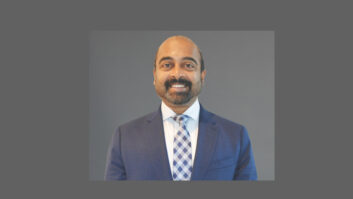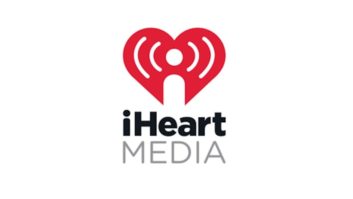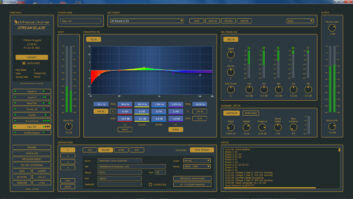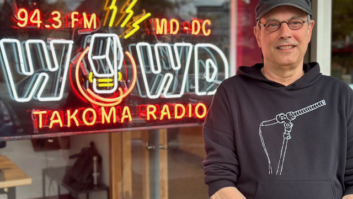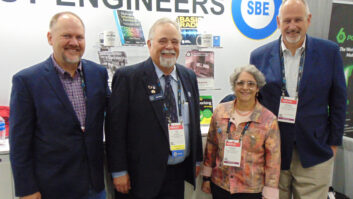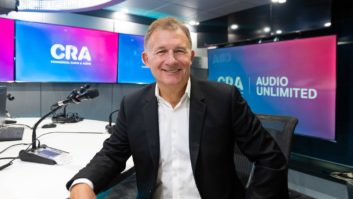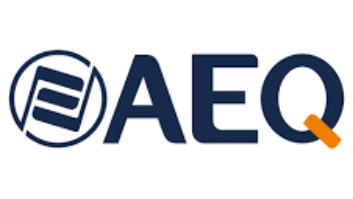
Last week we heard from Chris Nelson of NPR about the technical side of radio coverage at the Republican National Convention.
Today we reached Voice of America Radio Broadcast Technician Gary Jaffe in Charlotte, site of the Democratic convention, to ask the same questions. In the photo, Broadcast Technician Jeffrey Means and Reporter Doug Bernard are seen in VOA Radio Booth 1 in Charlotte, N.C.
RW: How is it going for the VOA News technical team in your task of supporting coverage of the conventions?
Jaffe: Things are going amazingly smoothly here in Charlotte. We had some initial network problems due to our vendor’s security policy, but these were worked out prior to our coverage here.
RW: How many people overall does VOA have at the conventions? How many are involved for the technical operations/engineering?
Jaffe: VOA has approximately 70 people covering the two conventions. This includes 41 reporters who are originating programming in 21 languages. There are 22 technicians supporting our combined radio, TV and Web coverage.
RW: Briefly describe the gear each reporter carries.
Jaffe: The equipment radio reporters use varies. The Marantz PMD620 [recorder] is popular with reporters. The Zoom H1 [recorder] is in use here as well. We have cleared two wireless mic frequencies for our reporters to use on the convention floor.
RW: Briefly describe the audio chain from reporter to headquarters.
Jaffe:Field recordings and audio from the convention are stored on a server. They can be accessed via our workstations in the two radio booths. Reporters voice live reports with Sennheiser HMD 25 headsets. We are using Mackie Onyx 1220i mixers with the Firewire interface to a PC. In addition to software used for recording and editing, we have Denon DN-F650 solid-state memory recorders. We are using Comrex Access units for transmission using AAC coding.
RW: Any technical problems or challenges encountered at the conventions so far?
Jaffe: Networking issues seem to be some of the more challenging these days. VOA is moving video, audio and Web files over our network. In addition to our radio and television broadcasts, we are originating Skype video feeds to affiliates.
RW: NPR told us that they were challenged by difficulties in using ISDN, so they turned more to audio over IP. What has been your experience?
Jaffe: These are the first conventions that our transmissions for radio to our headquarters in Washington are exclusively via IP. VOA broadcasts globally, and we’ve found that ISDN is no longer available in a lot of areas where we have facilities. We have been transitioning to IP over the last several years.
RW: Anything else the readers of Radio World should know about the technical challenges of covering these events?
Jaffe: I know for VOA, and I expect for the rest of the broadcast industry, our support of the political conventions is the most technically complex and challenging assignment we face. We are required to set up and tear down a complete broadcast facility complete with newsroom, network infrastructure, and radio and television broadcast positions in the span of two weeks.





